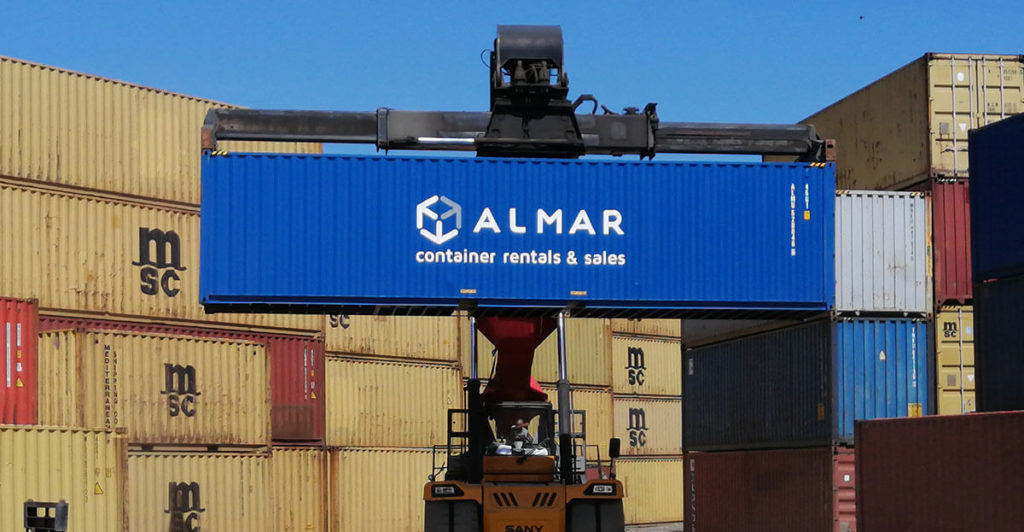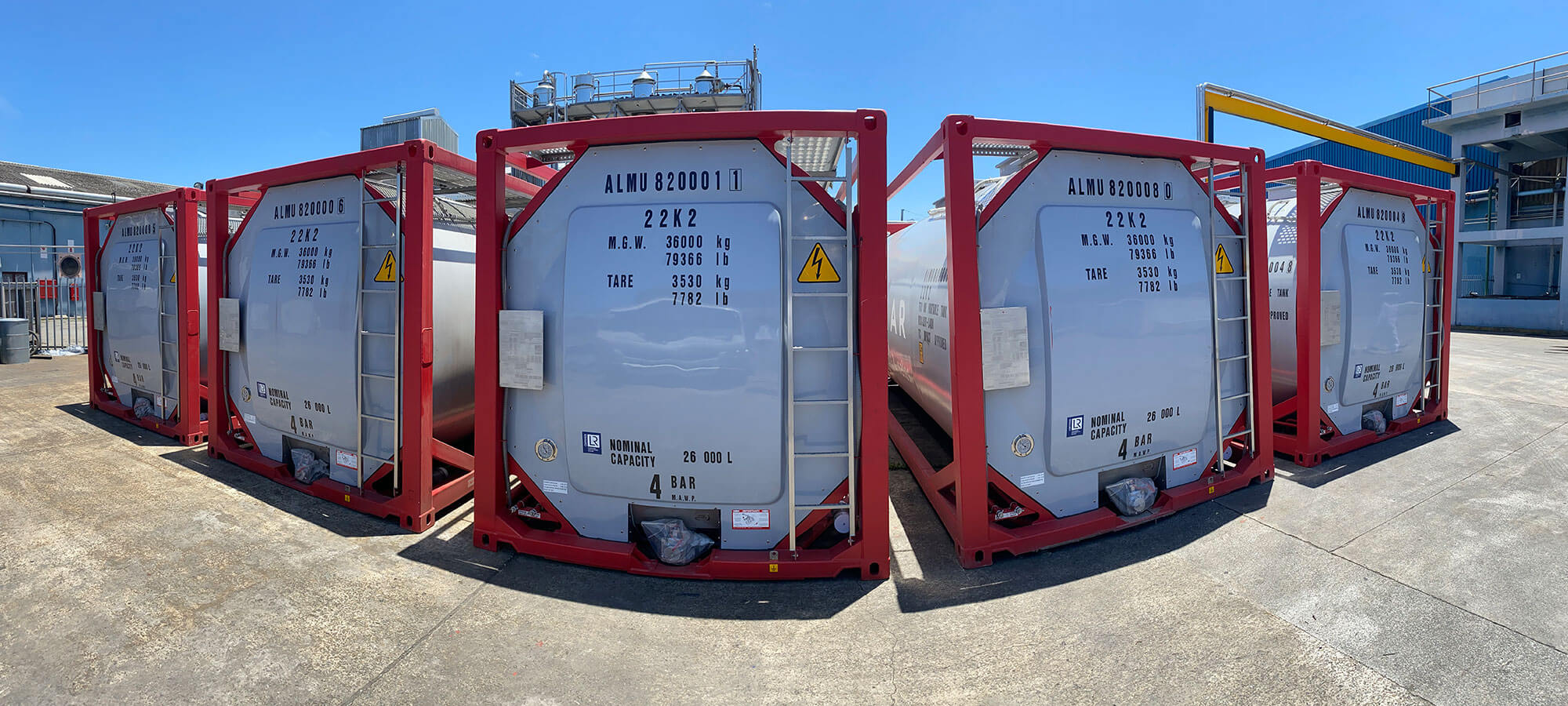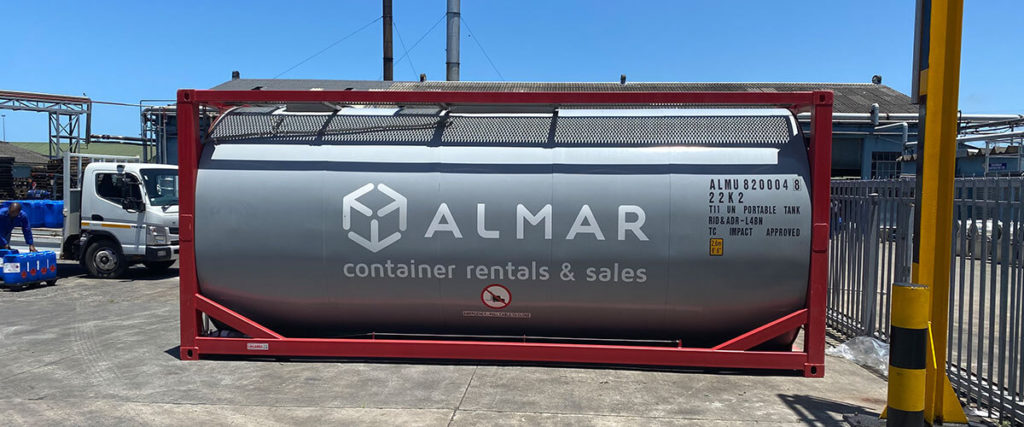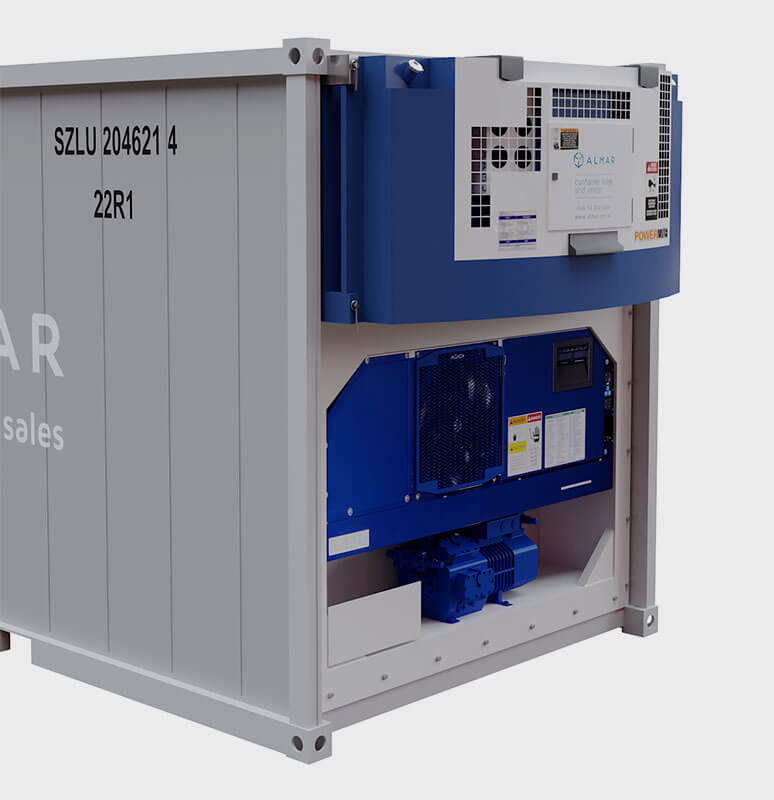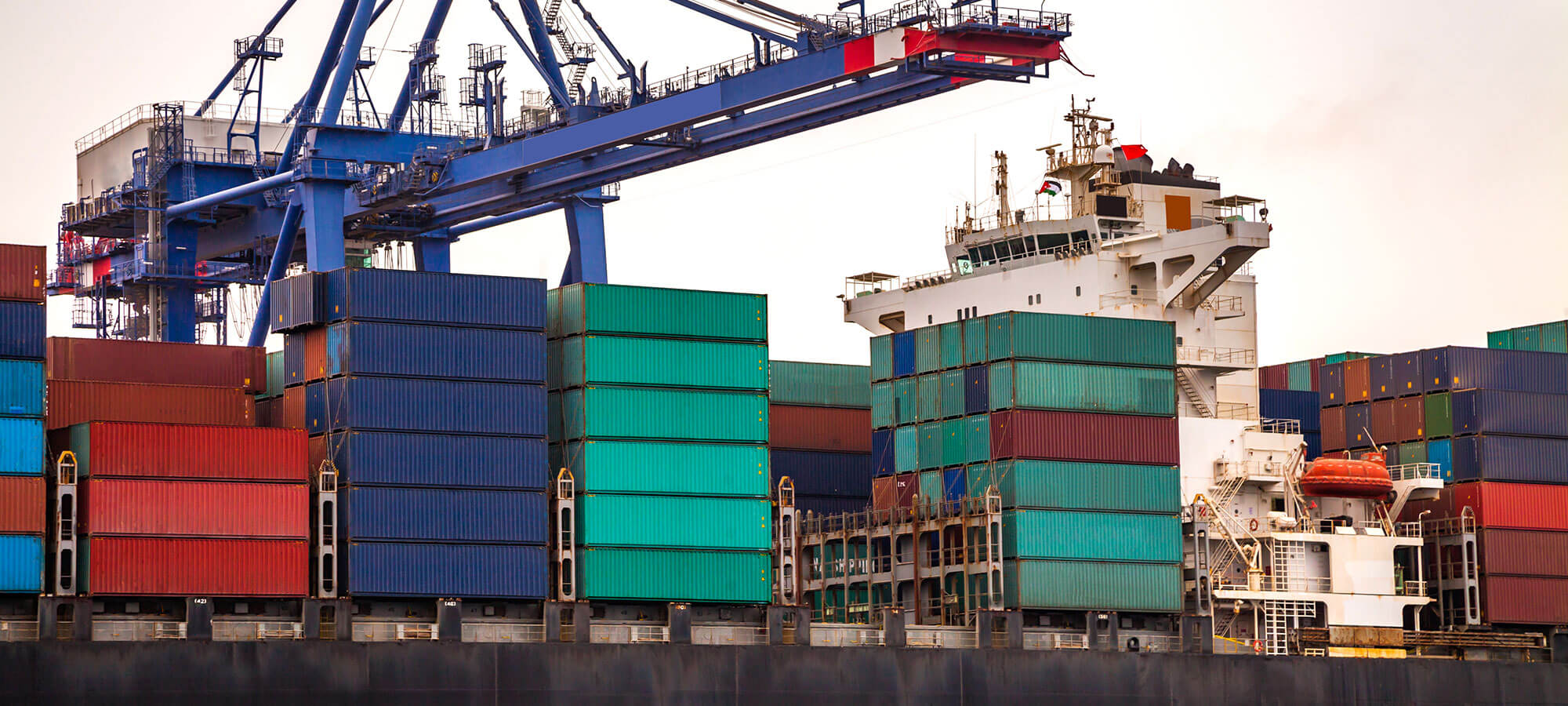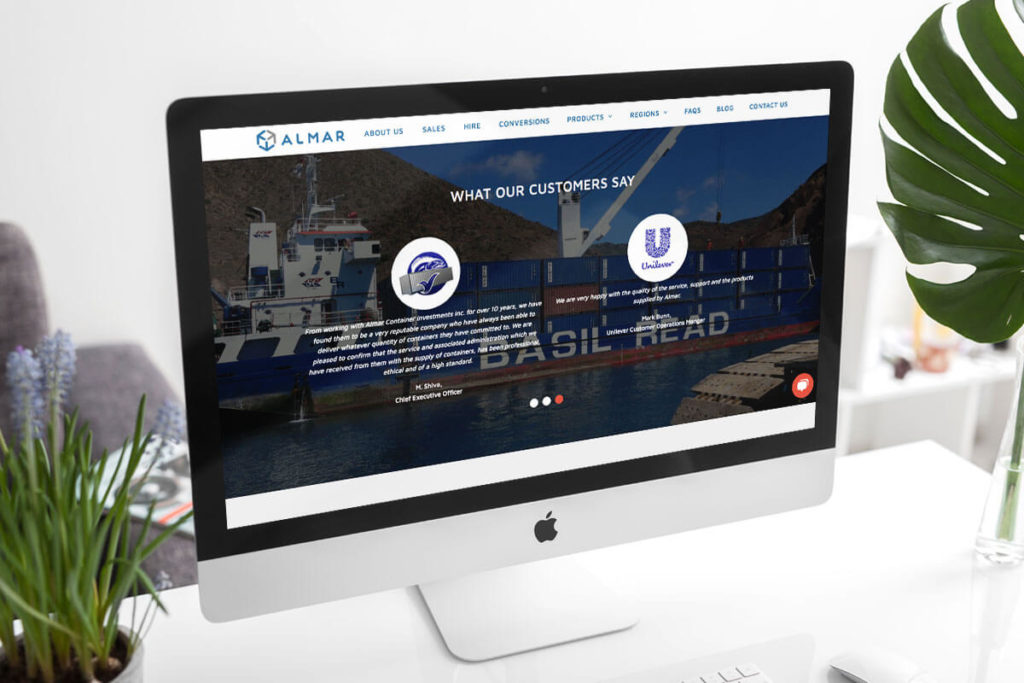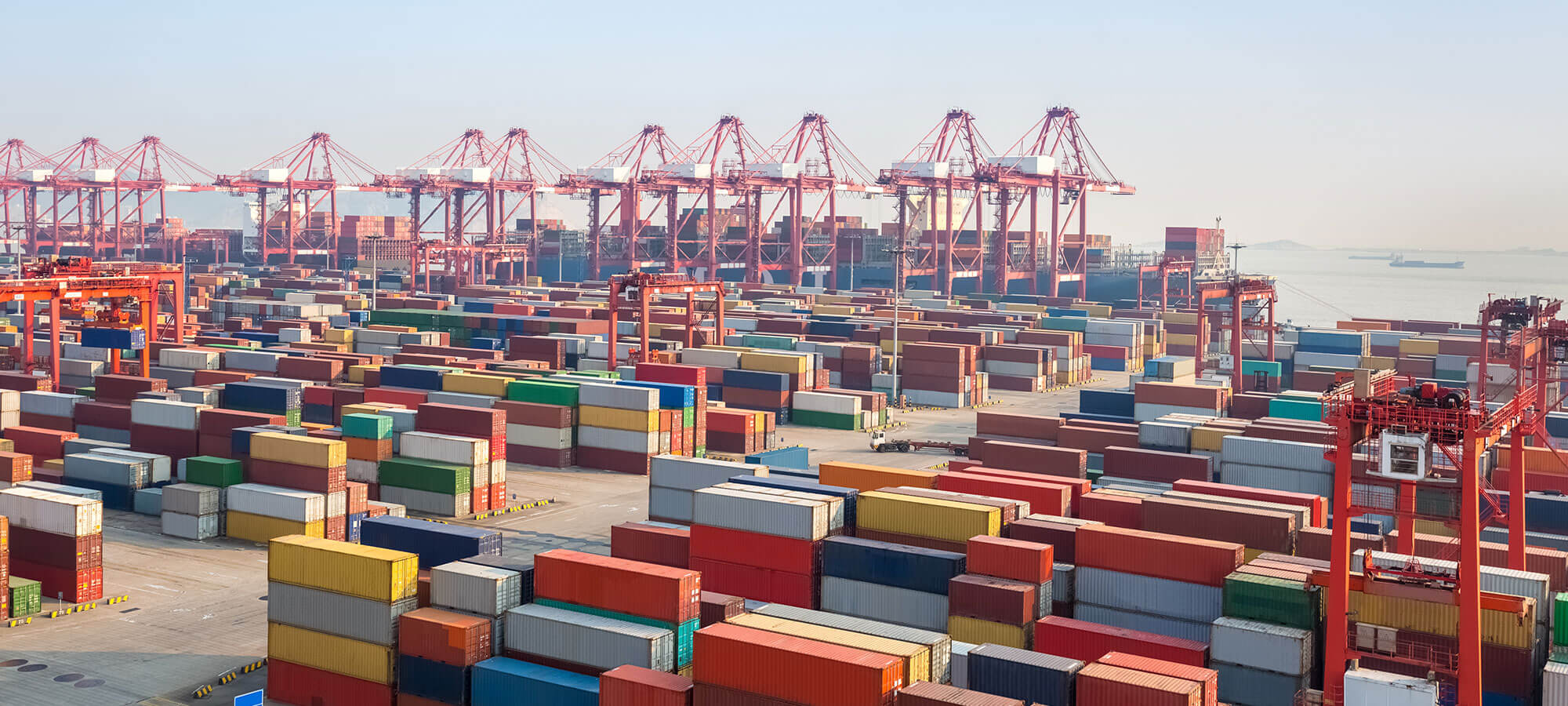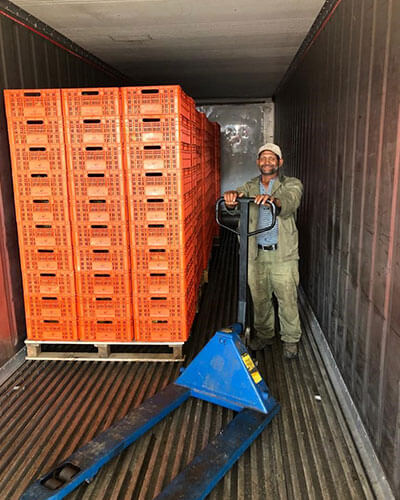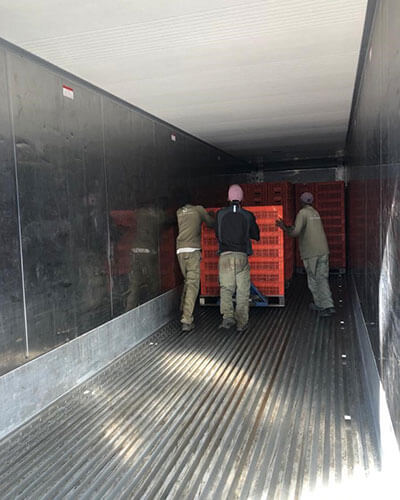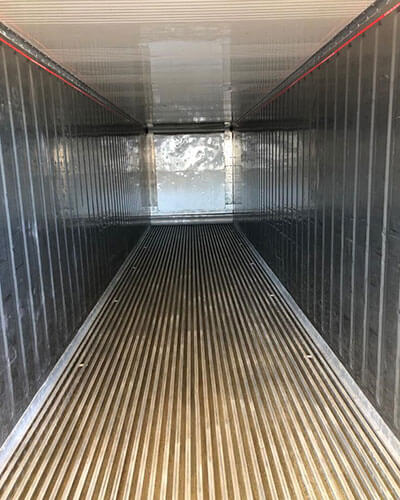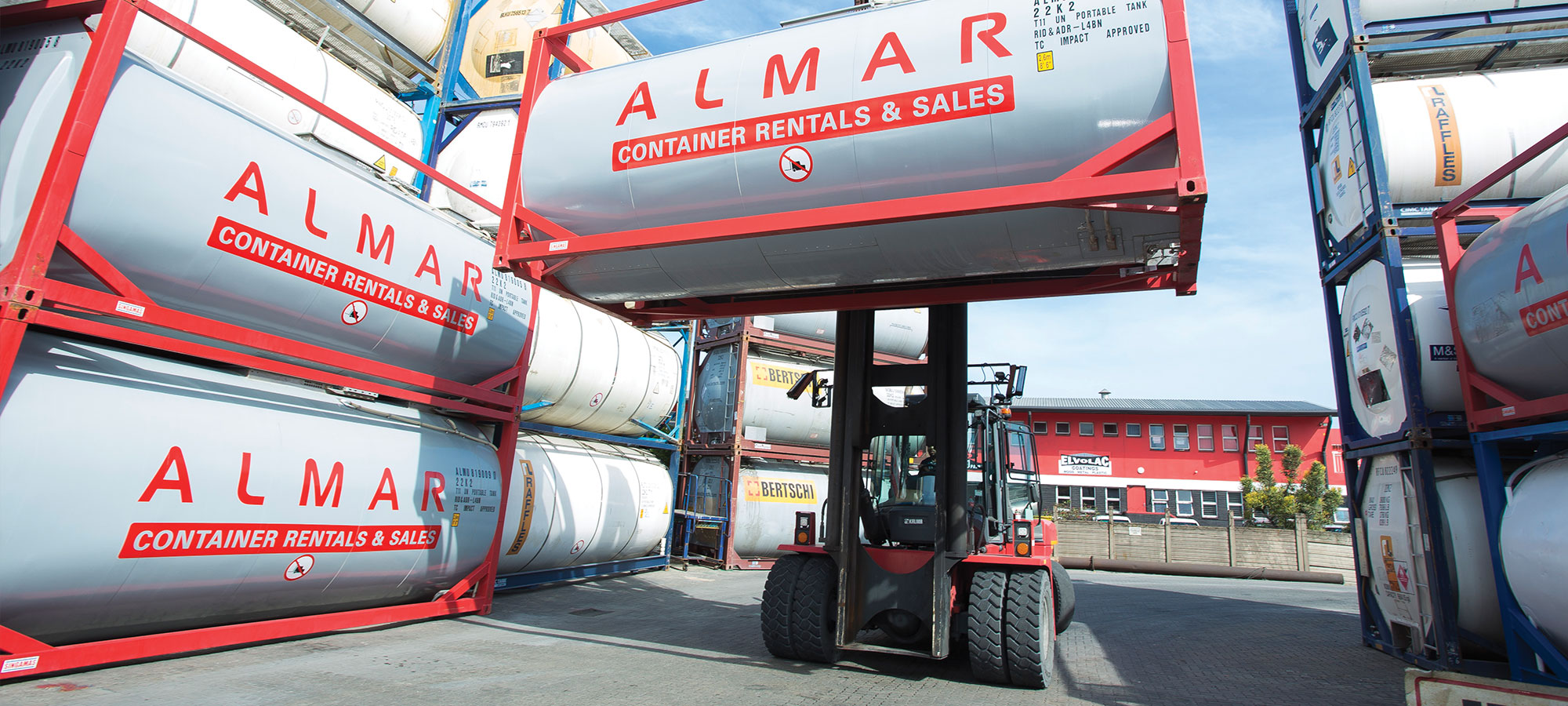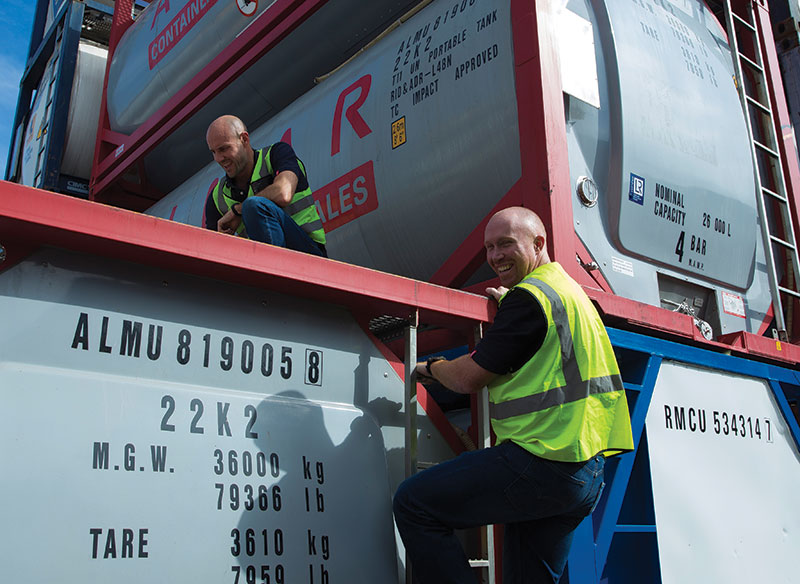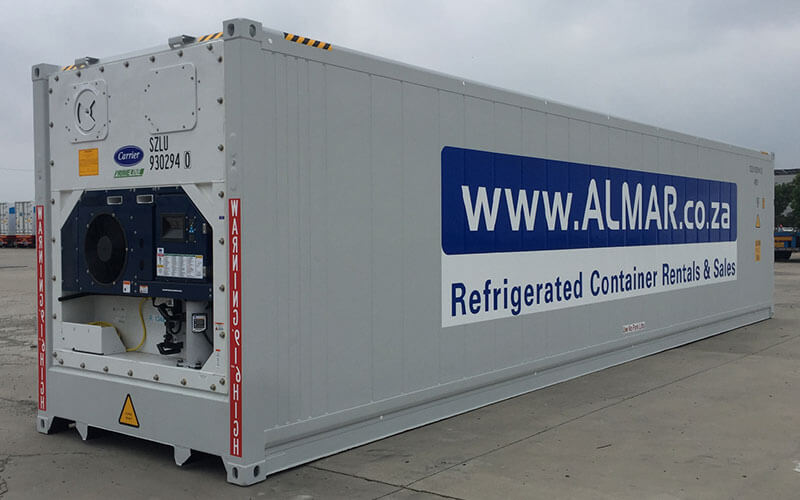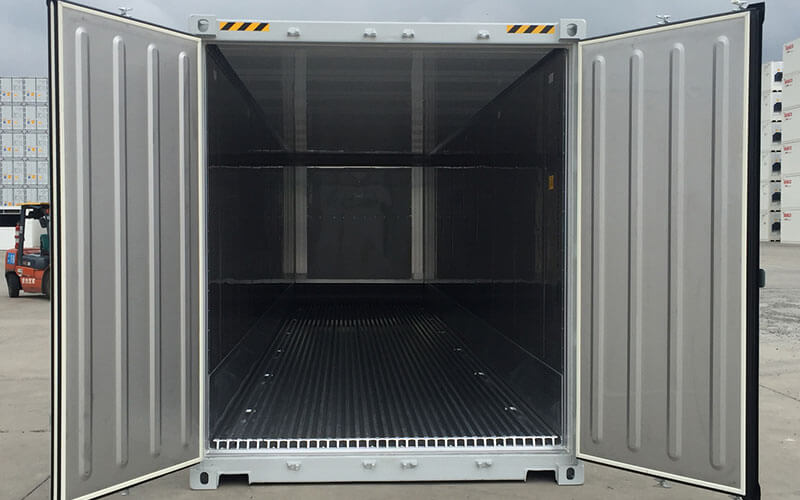What are reefer containers?
Reefer containers are big, mobile fridges that are used to transport and store products that need to be temperature controlled such as fruits, meat, fish, seafood, vegetables, dairy, medication and beverages, for example.
Refrigerated containers, known as reefers, keep fresh produce, perishable items, medicines, anatomical waste and beverages cold or frozen. These 20ft (6m) and 40ft (12m) containers are 2.4m wide and run on three phase (380 – 460v) power and can keep the contents at a consistent temperature ranging between -25°C and +25°C. Temperature can be adjusted and controlled to within 0.3°C of required set point.
How do reefer containers work?
Reefer containers are bottom air delivery units designed to distribute chilled air from the floor, via specific T-shaped decking, with the advantage of producing a consistent and uniform flow of air across the entire container, powerful enough to ensure a perfect air exchange with the goods.
Although not necessary, storing produce on pallets in reefers assists with stacking, loading and offloading. Nine pallets fit into a 20ft container while 20 pallets fit into a 40ft container.
How are reefer containers powered?
Each container is supplied with a length of power cable between 10 and 15m long (4 core, 4mm2 cable) and a standard marine grade IP65 rated CEE 17 plug with a 3’Clock earth pin. The electrical point required is a CEE 17 coupler with 3’Clock earth with a 32A D curve circuit breaker to protect the cable / electrical components. Alternatively, remove the C17 plug completely and wire directly into a 32A ‘D’ curve circuit breaker. NB – it requires a ‘D’ curve circuit breaker or motor start breaker. An industrial light start breaker will breakdown and cause single phasing and power supply problems. Reefers require a 3 Phase plus Earth connection – no Neutral is required.
It is important to note that a reefer cannot freeze unfrozen products. Reefers are holding freezers and will maintain the products temperature. The produce needs to be at the required temperature when packed into the reefers.
How easily available are reefer containers?
Reefers are available from Almar Container Group for short and long term rental. Dependent on the location, Almar reefers are rented on a fully supported basis with 24/7 technical support. Almar can assist with technical on-site installation of the reefers should this be required and technical support contact details are placed on all our refrigerated containers should you need to get hold of a technician.
Are reefers cost effective?
With permanent cold storage facilities you can face high costs and issues with accessibility. Chances are that your cold storage facility won’t be near the place your products need to be transported to. Hence, you’re going to end up having to organise regular transportation, which will lead to spending even more.
A reefer is also much faster to obtain than constructing bulk cold storage. With a reefer, you can have the cold storage you need immediately.
Renting a reefer container from Almar means no additional expenses such as service costs, or expensive repair costs in the event of a mechanical breakdown. Almar takes the risk and covers all these costs.
Are reefers energy efficient?
Reefers are energy efficient. All Almar containers for rent are Carrier – a world-leading brand in container refrigeration. Their optimised assembly reduces power consumption but not airflow.
For minimal environmental impact, R-134a freon of the Carrier has a significantly lower atmospheric life and GWP (Global Warming Potential) than R-404A.
What is the cooling capacity of a reefer?
| Temperature | Watts | Btu/hr |
|---|
| 2°C (35°F) | 12,000 | 40,900 |
| -18°C (0°F) | 6,600 | 22,500 |
| -29°C (-20°F) | 4,400 | 15,000 |
What are the installation requirements of a reefer?
The site needs to be level and built from a suitable material that will prevent the container sinking into the ground. Make sure that the front and back of the unit is level and the doors are square. A slight fall towards the door end will facilitate the cleaning of the interior. This fall should be around 3 to 4 degrees.
How can I maintain a reefer?
The following basic steps can be taken to keep your refrigerated container in good working order:
Daily:
Keep a twice daily record of the temperature on the control panel to ensure any variations are noted. Ensure the container is switched to a manual defrost cycle before entering the container.
Monthly:
Ensure that no ice build-up is allowed to develop within the container, especially on the floor area and within the T-Bar flooring, as this may disrupt the airflow within the container and cause temperature fluctuations. A complete clean out and removal of ice may be called for.
Almar offers fully supported rental agreements, so we take care of the regular servicing, allowing you to focus on your core business.
Client uses of reefer containers:
According to Dave Williams of Almar Container Group, October, November and December is referred to in the industry as ‘reefer season’. This is because retailers need to stock up on additional fresh and frozen produce and renting temporary storage on their premises is the ideal solution. Outdoor events and festivals which require temporary dry and refrigerated storage also spike over these three months.
During ‘reefer season’ in South Africa, Almar Container Group supplied reefer containers to Rocking the Daisies, The BMW M Festival, The 9 hour endurance race at Kyalami, The Nedbank Golf Challenge and Corona Sunset Festivals to name a few. This saw a 48% percentage increase in reefer rentals for this three month period.
The Nedbank Golf Challenge, one of the highlights on the South African sporting calendar, make use of reefers for the tournament which forms part of the European Tour. They rent up to 30 Almar reefers for the four day event held in November at Sun City, which attracts over 60 000 spectators. The reefers keep their stock cold, secure and at their fingertips for the duration of the tournament.
The Saudi Government organises one of the biggest entertainment events in the region called Dairiyah Seasons which runs for a month from the end of November to the end of December. The event attracts renowned global artists and entertainers with the venue extending over 130 000 square meters and attracting over one million visitors. Almar Saudi supplied a combination of 59 dry and reefer containers on a rental basis for this epic event.
Almar’s wide range of refrigerated containers provide a versatile and cost effective alternative to typical cold storage solutions. Not only do refrigerated containers offer an instant secure cold room facility, for either chilled or frozen products, but they are also offered on a rental or outright purchase basis.
Almar Reefer Containers keep your perishable goods at the perfect temperature, in any environment. For more information contact Almar on 031 561 6767 or email dave@almar.co.za.
What are the benefits of reefer containers?
Refrigerated containers are an easy way to increase your storage volume and offer many advantages which include the following:
- Single installation – containers are modular and can be placed just about anywhere level, with a true ‘plug and play’ installation.
- Modular – containers are standard sizes and their modular ability allows for rooms to be added and removed during seasonal capacity requirements.
- Hygienic food grade interiors – all containers have high-grade stainless steel interiors, which are easy to clean.
- Robust machinery – Almar use the latest Carrier Reefer Containers which is the industry standard. Carrier supply the world’s shipping lines with almost 80% of all Reefers. They are reliable and robust with machinery built to withstand the harshest conditions.
- Mobile – the containers are designed for intermodal transport and therefore can be uplifted and moved very easily.
- Chilled and deep frozen product – containers allow for temperature ranges between -25°C and +25°C.
- Dehumidification Control – allows certain reefer models to maintain between 60% and 90% relative humidity in the unit. This is an added advantage for clients with very specific humidity / temperature requirements for perishable cargoes.
- Accurate temperature maintenance – containers can monitor and track temperatures ranging within 0.3°C.
- T-Bar flooring – ensures efficient airflow when containers are fully loaded.
- Digital temperature display – allows for easy temperature monitoring and adjustment.
- Simple operation – Reefer containers are a ‘plug and play’ cold storage solution, provided with operational guides and basic training if required.
- Service – a 24/7 helpline in the event of technical problems or breakdowns.
